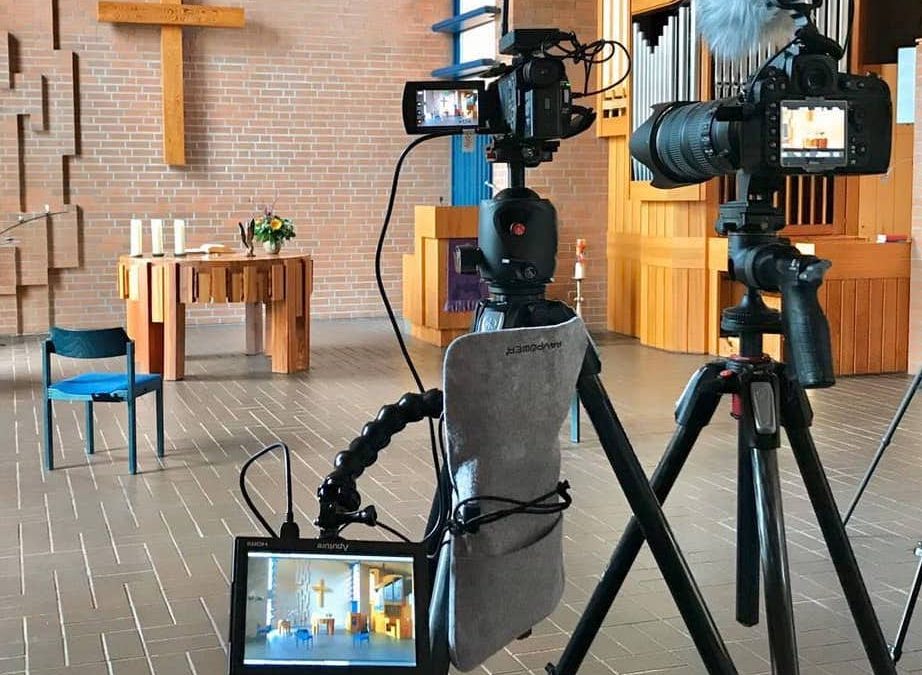einBlick – Uni Würzburg | Kirchen in der Corona-Krise | 09.06.2020
10. June 2020Neue Zürcher Zeitung | An der Universität Zürich untersuchen Forscher, wie Corona unser Leben verändert | 15.11.2020
16. November 2020Press Release
Digitalization in the church:
The international ecumenical research project CONTOC – Churches Online in Times of Corona – examines church practice in the Corona period. Digitalized communication is present in many areas of church life. Pastors and pastoral workers show a wide range of different and creative ways of dealing with the crisis situation. In the Corona period, the question of the task and role of the church is more urgent than ever.
The role of the churches in the Corona period is controversially discussed in the media. The statements vary: Here, enthusiastic reports about digital innovation and pastoral renewal. There, accusations of missed opportunities, obedience to authorities and insufficient communication of faith. Here signs of lasting church reform, there talk of their lack of systemic relevance.
What is your greatest learning experience in times of Corona?
The research project CONTOC wants to know more about it. Almost 6,500 pastors and pastoral workers from over twenty countries have provided information. From Germany alone, 3,960 answers are available, from Austria 410 and from Switzerland 771. The high number of responses to the extensive questionnaire as well as numerous detailed written comments allow a deep insight into the life of the Catholic, Protestant and other local churches under Corona conditions and beyond. The voices from everyday church life show: Much has been learned. But there is also a great need for clarification and a high willingness to reflect among the church professionals.
Different and complex experiences and assessments
The exact evaluation of the data starts now. But it is already clear: It is complicated. Simplifying quick analyses are not enough. In cooperation with volunteers, the church’s full-time staff have developed a wide variety of forms of digital services for worship, pastoral care, education and social welfare, and have had very different experiences. The significance of digitization for pastoral work and what is to be done now for future work in the church has been widely and contradictory.
Ambitious research project
In view of many different creative attempts to deal with the challenges of the Corona period in an existentially relevant way, a wide field of research opens up.
This is where the CONTOC research team starts evaluating the data: Which patterns of crisis reaction can be discovered in pastoral workers and pastors? What role do questions of digitalization play in this? What are the consequences for the participation of volunteers and for the church professions? What perspectives are opening up for church development? And how does all this compare internationally, for example in Sweden without a lockdown, in South Korea or in South Africa? The range of results promises important indications for answering urgent development questions of the churches.
More information: www.contoc.org
For further information please contact us:
- Prof. Dr. Thomas Schlag
Chair of Practical Theology, University of Zurich - Prof. Dr. Ilona Nord
Institute for Protestant Theology and Religious Education, University of Würzburg - Dr. Sabrina Müller
Center for Church Development, University of Zurich - Prof. Dr. Georg Lämmlin
Social Science Institute of the EKD, Hannover - Tit. Prof. Dr. Arnd Bünker
Social Science Institute of the EKD, Hannover - Prof. Dr. Wolfgang Beck
Chair of Pastoral Theology, Philosophical-Theological University of St. Georgen

